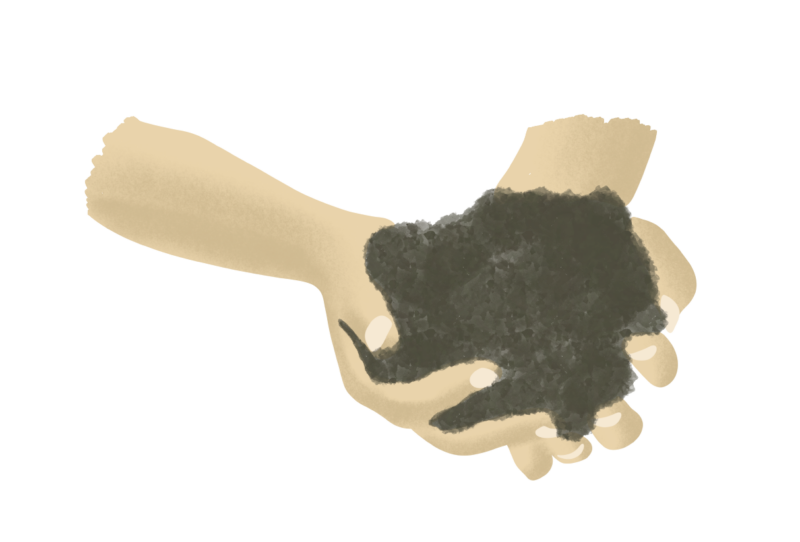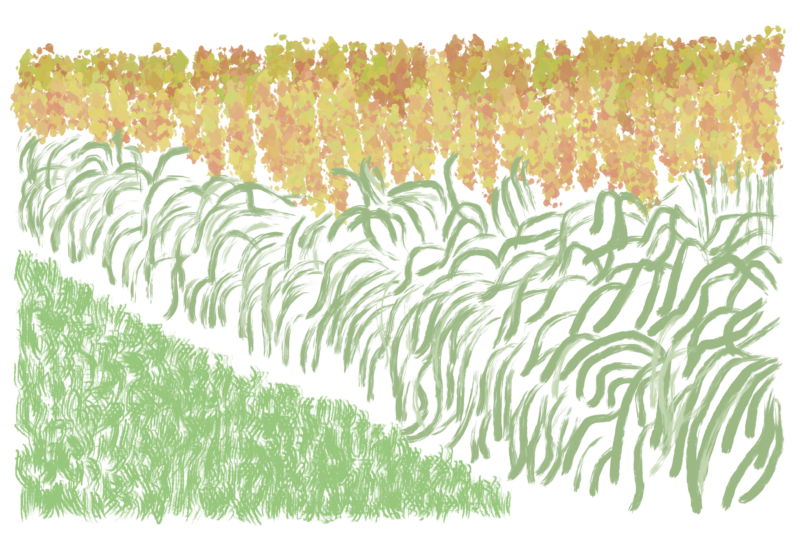Left fallow for twenty years, this plot that we acquired in 2018 was used as an illegal dumpsite for some time. With the goal of transforming it back into healthy land, we dedicated 6 months to collect and bring 200 tons of construction and public works debris to the local landfill. This plot is not an isolated case. Construction and public works sites are responsible for 47% of these illegal dumps in France.
The impact on nature was evident. The sight of a dead stone pine, its trunk buried by debris, starkly highlighted the site’s environmental degradation. There are still remnants of the illegal dump along this woodland that we continue to clean every year. This ongoing effort ensures the land’s sustained recovery.
But rehabilitating the land didn’t just involve removing the waste…

An illustration of a portion of this plot before our acquisition, according to Google Maps
Next step was restoring the land’s natural slope. The gaps and ruts created by the removal of debris were filled with fertile topsoil sourced from our Costières region, laying the groundwork for revitalization.
Then, in order to rebuild the soil’s health, we introduced 100 tons of compost per hectare. This massive infusion of organic matter was crucial for rejuvenating the soil’s vitality and fostering new life.

Finally we planted Sudan Grass Sorghum. This plant not only acts as a natural soil disinfectant but also serves as an excellent green fertilizer, further enriching the soil.

Illustration of the cultivation of Sudan Grass Sorghum
Over three years, these concerted efforts gradually transformed the land. The plot, once a blight, was now ready to receive our young vines.
Our journey underscored that restoring an ecosystem is a gradual, holistic process. It requires a blend of appropriate techniques, sustained efforts, and patience.
Our experience stands as a testament to the principle that with time, care, and the right resources, nature has the remarkable ability to heal and flourish once again.
Did you know
There are mobile apps you can use to report illegal dumps: Clean4green and Stop Décharges Sauvages are good examples. In these applications, you describe, photograph, and identify the location of the spotted waste. A report is sent to the relevant municipality, and volunteers can mobilize for the collection.
Illustrations : Laurie- Bilden Studio
To enter our website, you must be of legal drinking age in your country.